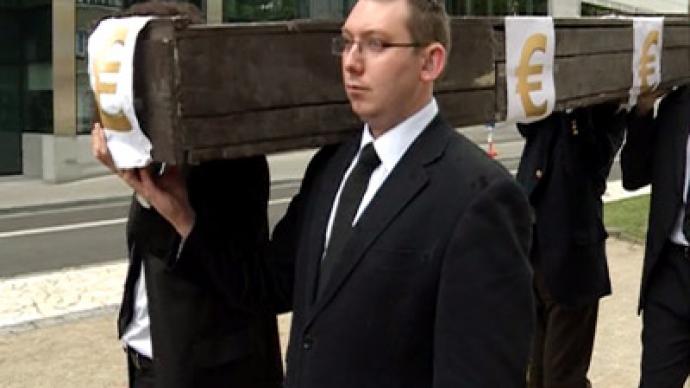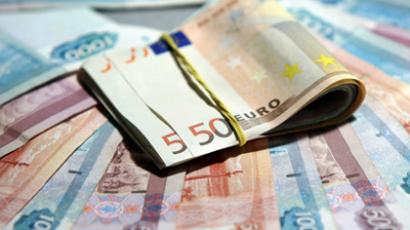Eurozone dream crumbling

Drastic spending cuts are on the way in Italy as parliament desperately tries to fend off a spiraling debt crisis. It seems the fairytale dream of a unified euro has met with harsh reality, and the collision may not be pretty.
As the clouds gather over Athens and the Greek bailout battle continues, dark times could lie ahead for Europe. Babis Ananuadis, who owns a restaurant in Greece, seems to have little optimism left.“Everybody here is afraid for the future,” he told RT.With eurozone countries like Italy now also looking on increasingly unstable ground, the question as to whether or not the euro can ride out this financial storm has well and truly surfaced.
"This is really something quite frightening. And if indeed Italy gets into big trouble on the financial markets this will be a new phase of this euro crisis – a whole new dimension," predicts Johan Van Overtveldt, editor-in-chief of Belgium’s leading business magazine Trends.The euro fairytale was all too appealing. Countries tripped over themselves for a bite of the juicy apple. But now many are left regretting taking that bite.“With the drachma it was not bad. Now products are expensive, the salaries are not so high,” says Babis Ananuadis.After more than a decade of growth, businesses like Babis’ have been hit hard. Although the main shopping street in Athens is still bustling, the economic crisis has meant that many businesses in Greece have simply gone under.Joining the euro meant European prices but for many of the members with weaker economies not European wages. With one botched bailout after another, the euroskeptics, who warned of danger from the start, may have become the unlikely antiheros of this tale.Nigel Farage, Member of the European Parliament from the UK Independence Party, said in the chamber:“Just who the hell do you think you people are? You are very, very dangerous people indeed. Your obsession with creating this euro state means that you’re happy to destroy democracy. You appear to be happy for millions and millions of people to be unemployed and poor. Untold millions must suffer so that your euro dream can continue. If you rob people of their identity, you rob them of their democracy, and all they are left with is nationalism and violence.”Countries are now waking up to the reality of the nightmare they are trapped in.“The euro is a political prison for countries such as Greece and Spain, and they need to be liberated from that prison, re-create their own currencies, have devaluation, make their exports cheaper and easier for tourists to visit their countries – and they will get back on their feet,” David Bannerman, MEP from the UK Conservative Party, believes.Greece, Ireland, Portugal, Italy, Spain – the dominos continue to topple. For the euro it seems there will be no happily ever after.
Euro had no much chance to succeed – professor
With no bailout to be expected, the crisis-stricken countries in the eurozone will most probably have to default on their debts, says Professor Patrick Minford from Cardiff Business School. The professor recalls the crisis in Argentina when the country had to default on its debt to get the economy back on the rails. The euro currency project has raised doubts from the very beginning, Professor Minford told RT.“From the start a lot of critics said it had not got much chance in succeeding in the long term with these very different economies of the south of Europe. And this is really what has happened. The south, I think, is going to have to break away and get outside the euro and devalue, go back to drachma or escudo and so on. Maybe, in the fullness of time they can rejoin,” said Minford. “This will make the euro a currency of the rich northern part of Europe – and I think this where it could have succeeded very long ago.”














